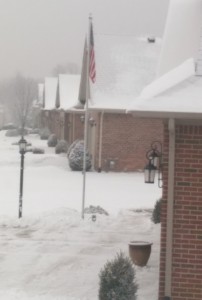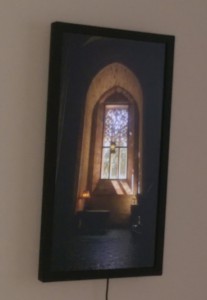I recently read an article about a “Burger Bot” that is being developed to automate fast-food restaurants. The author lamented that because so much work can be done with machines, it won’t be long before there are no jobs left for real human beings.
Of course, that line of thought has been worrying people ever since the Industrial Age got underway. Advances in technology have been displacing large numbers of workers for centuries. Our society no longer needs blacksmiths, carriage makers, or many other occupations that once were commonplace. Most of us don’t live on farms in small towns anymore. So, we have to find a niche in today’s complicated economy, and that’s not easy.
Although increased production has made more resources available for new industries to develop, it has been a continuing struggle for this expansion to happen quickly enough to create all the jobs we need. Because of population growth, even in years when many new jobs were created, we’ve always had more workers competing to fill them. Modern transportation and communication technologies have made it possible for companies to move jobs anywhere, bringing even the most remote areas into the global economy. Civil rights laws also have increased the number of people in the workforce—in particular, women.
That’s a lot of transitions to deal with at once. No wonder there is so much anxiety among today’s workers. Although lower birthrates will eventually reduce the number of people seeking jobs as the global economy continues to expand, we’re not there yet.
I remember taking part in a conversation on a forum about ten years ago, started by a woman who enjoyed having a lot of projects to work on. She wrote that when she reached the end of a project and hadn’t yet moved on to another one, it always left her feeling anxious. “The Betweens” was what she called that feeling—a sense of displacement and uncertainty, wanting to do something more but not knowing what came next.
Right now, I would describe our society as mired in the Betweens. Many of the old ways of doing things have outlived their usefulness, but it’s not yet clear what will replace them. All that uncertainty leaves us with vague feelings of impending calamity, as if we need to fix everything right away and it’s going to turn into a huge disaster if we can’t get it all sorted now.
But the upside of the Betweens is that they give us an opportunity for valuable reflection, if we can get past the anxiety and look calmly at what’s going on around us. The Betweens are always happening on a smaller scale in our everyday lives, when we finish a task or errand and haven’t yet moved on to the next one. Often we get in the habit of rushing from one thing to another, without taking time to reflect. Even though we may not consciously notice the anxiety, it’s there anyway as we hurry through our days juggling a schedule packed with chores and obligations, getting distracted and annoyed whenever something slows us down.
This year I’ve been making an effort to change my perspective—to reframe those small daily moments of waiting in long grocery checkout lines, etc., as natural pauses in life’s busy flow and to practice mindfulness when they occur. I want to appreciate the Betweens, to cherish them—to feel grateful for the little unplanned gifts of grace with which they bless my life. Having time to slow down, get my thoughts in order, and be present in the moment really is a blessing, even in the checkout line!
And I am hopeful that our society will develop more creative appreciation for the Betweens, too. Changes and transitions aren’t necessarily bad; we just need time, perspective, and mental energy to deal with them. We have so much power to shape both our personal lives and the world around us into better and healthier patterns, but first we need to take enough time to consider where we want to be!
As workforce growth slows in the coming decades and the global population begins to drop, we’ll likely find ourselves in a much-changed world where companies struggle to cope with persistent labor shortages. Industries that rely on having large numbers of unskilled low-wage workers, such as fast food, will crash unless automation can fill the gap. I believe it’ll turn out to be very good for future workers, having Burger Bots make their lunches while they pursue better-paid and more interesting careers.
I’ll also note that although the Millennial generation often gets criticized for having a sense of entitlement, they generally understand that they are in control of their own lifestyles and career choices. We could all use more of that.









